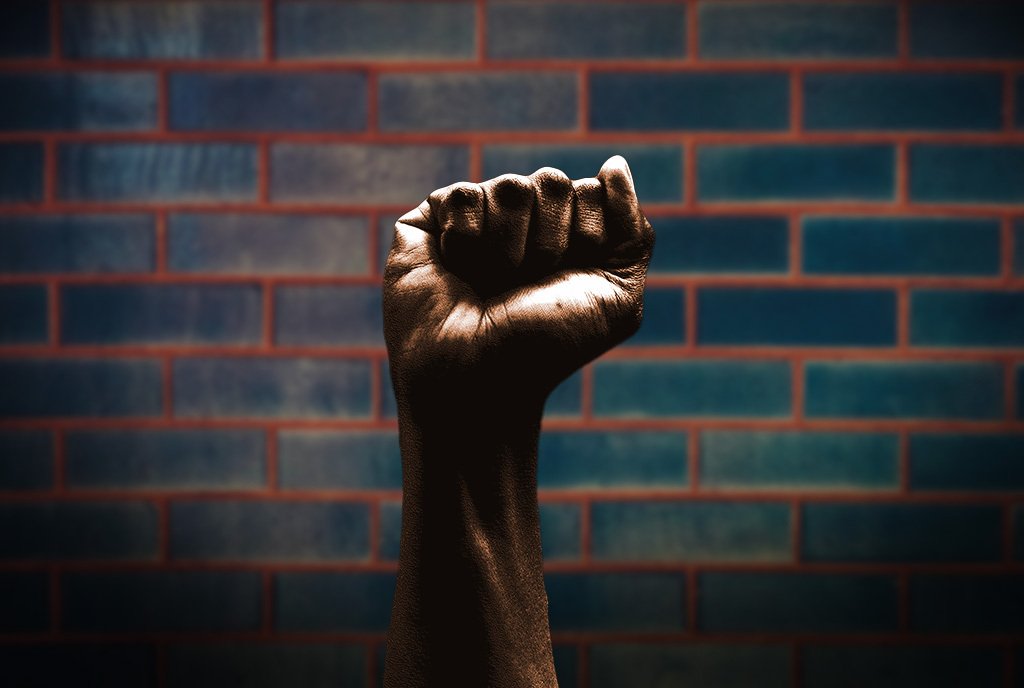
The past few years have seen a flurry of workers organizing across the country, from Starbucks and Amazon workers to new forms of cooperative ownership and governance sharing. NPQ’s column, We Stood Up, features the voices of people doing the hard work of realizing economic justice in their workplaces. These stories come from workers who want to share their experiences building a democratic economy and a fairer world so that others can learn from their efforts.
When union organizers prepare our unit members to go on strike, we spend a great deal of time reassuring them, easing their fears of retaliation, and spurring them into action. But when it comes down to it, even the most experienced organizers have to admit the truth: going on strike is scary!
After all, union-busting bosses spend thousands—sometimes millions—to make the idea of striking as terrifying as possible. They threaten to take away our pay and benefits, they hire scab workers to replace us, they fearmonger about how a strike will hurt the company, and they insult us every step of the way, all with the goal of making us think we aren’t worth a fair contract. They want us to think that the risks of striking outweigh the benefits and give up before we start.
In many cases, these tactics work. Countless strikes have been defeated by bosses scaring employees back to their desks or turning them against one another. Going on strike is a nerve-wracking proposition, especially if you might be out for a long time—but sometimes you have no choice. That was the case for my newsroom union, which walked out in the summer of 2023.
We’d been steadily bargaining our contract since 2021, but two aggressive moves from management suddenly sent our union scrambling. First, they illegally changed our healthcare benefits without bargaining, ramping up prescription costs; then, they attempted to lay off 60 members. That included employees on visas, employees on parental leave, half of our Black unit members—and me.
We overcame our fear to protect our rights, keep journalism sustainable.
We stewards had spent years preparing our unit members for this moment. But when push came to shove, no amount of organizing could totally prepare 300 journalists for the reality of going on strike. With most of us living in New York City, could we afford to go without pay? Would walking out put a target on our backs for future layoffs, or blacklist us in the industry? How long would the strike last?
Sign up for our free newsletters
Subscribe to NPQ's newsletters to have our top stories delivered directly to your inbox.
By signing up, you agree to our privacy policy and terms of use, and to receive messages from NPQ and our partners.
Management didn’t help the situation by threatening further layoffs, reassigning our work to scabs, and refusing to bargain even as we passed the strike deadline. We put on a brave face, but the feeling of panic definitely hung in the air. What if the strike failed? Should we just settle for less, like our bosses wanted? Was our contract doomed?
We can’t lie and say that it’s not frightening, and we can’t promise that everything will turn out perfectly. But fighting against bad bosses takes courage. And having courage doesn’t mean you’re fearless—it means you’re willing to act despite your fear.
This is why, as soon as the strike began, we got to work making sure that all our members had a role to play; leaving 300 members to just sit around doing nothing is a surefire way to let anxiety take over. Dozens of members joined our picket line in Manhattan, and more remote employees held our “click-it” line on social media, asking readers not to visit our site during the strike. Some of us sent angry letters to the company that owns ours; some of us passed out leaflets in our bosses’ neighborhoods. We collected funds to help unit members who couldn’t afford to go without pay. Some members even started their own strike paper, publishing articles about the benefits of organized labor—an effort so successful that it got the White House to support our strike.
Yes, we were scared. But we stood together, helping one another to stand strong. And with enough solidarity, that fear hardened into confidence. We began to feel a righteous joy that kept us at the bargaining table, kept us screaming on the picket line, and kept us fighting for a fair contract, even when it seemed like we’d never win.
After two weeks, management gave in. Not only did we secure an amazing contract that included instant raises, employment protections, and over $400,000 in healthcare reimbursements, but we also saved 22 coworkers from being laid off—including me.
We overcame our fear to protect our rights, keep journalism sustainable, and win an awesome contract. That was worth the risks, and worth every moment of worry.












